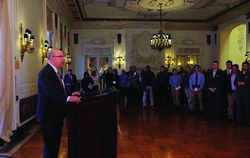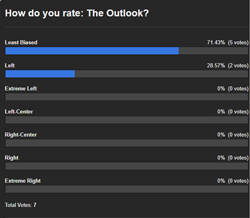The Criminal Justice Department held its 7th annual networking event in Wilson Hall on Wednesday, March 27.
The event was orchestrated by Nicholas F. Sewitch, Chair of the Department of Criminal Justice, with assistance from the Criminal Justice Department Secretary Helen Leary.
Presenters included criminal justice practitioners from Federal Law Enforcement, State, County, and Local Law Enforcement, Homeland Security, Crime Scene Investigation, Rehabilitative Services and Victim Assistant Services.
The event was marketed to the entire university. “Different areas of expertise are what these employers are looking for,” Sewitch said.
As a criminal justice professor, Sewitch would like to claim that students must be criminal justice majors in order to work in one of the represented fields, but that is not the case.
“There’s a lot of interdisciplinary work in these fields. For instance, the FBI loves to bring in a diversity of qualifications,” he explained.
Last year, 200 students attended the event, representing 18 different majors. Shannon Cunningham, Ph.D., an assistant professor of criminal justice, said, “[The department] invites a number of different practitioners in the field to come and interact with our students. It’s open to everyone.”
Chad Deblazio, aZ senior homeland security student, said, “You get the chance to talk [with professionals from local, state, and federal agencies] and see what the day-to-day is like.” He was able to ask questions and build connections with potential employers.
By conversing with professionals, students are able to discover their passions. Jessica Gonzales, a freshman criminal justice student, said “I just want to get to know more about the jobs since I’m a freshman. I want to attend the Federal Bureau of Investigation (FBI) and District Attorney (DA) panels.”
“We’re trying to help students discover their passion by helping them find out what jobs are out there,” he said.
Students engaged with professionals during five concurrent breakout sessions that rotated every 80 minutes. This format allowed students to attend two sessions.
Professionals briefly introduced themselves and answered questions in a group setting.
The last 20 minutes of each session were devoted to one-on-one networking with the presenters.
Peter Liu, a professor of criminal justice, attended the Rehabilitative Services and Victim Assistant Services session.
He reaffirmed Sewitch’s motto that criminal justice careers extend beyond the major.
He said, “We have a lot of psychology and social work majors [in this session]. Victim advocates are an important part of the criminal justice system.”
“Support is crucial and students should know there are human parts to this system beyond law enforcement,” Lui concluded.
PHOTO COURTESY of Monmouth University



